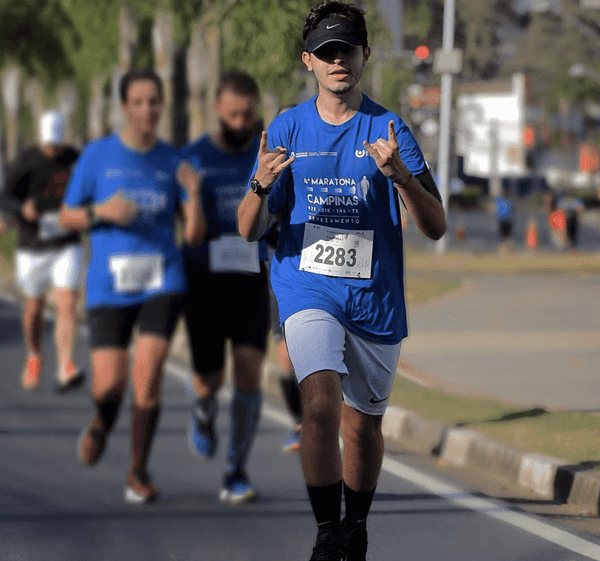When one hears the term "HIV," most people either skirt the edges of the topic and deflect to something less heavy or make a snide joke about it. It's understandable, considering all the societal stigma and discrimination that has bred an era of despair, pain and isolation surrounding it when today's treatments render it almost completely harmless, both to HIV-positive people as well as those that have not been diagnosed. HIV stands for Human Immunodeficiency Virus, and it is the first step toward developing AIDS, or Acquired Immune Deficiency Syndrome, however they are two completely different things.
So many myths surround HIV and AIDS, and these untruths and half-facts have fostered a sense of fear and non-understanding among people who are not HIV-positive. This is something that needs to change within the minds of society because HIV is not a joke.
Myth 1: I can be infected with HIV by being around someone who is HIV-positive
The facts show that you can't get HIV from breathing the same air as an HIV-positive person, by kissing, hugging, sharing eating utensils or using the same toilet seats as an HIV-positive person.
You can only get HIV from infected blood, semen, vaginal fluids or breast milk getting into your circulatory system. It is also transferable from sharing needles with someone who is HIV-positive.
Myth 2: Someone who gets diagnosed with HIV is going to die
Studies show that anti-retroviral treatments, the drugs HIV patients use to suppress the virus, are at a historical high in effectiveness. Further, there exist two different kinds of preventatives available for those who are not HIV-positive. The first, called Truvada, is known societally as PrEP (Pre-Exposure Prophylaxis) and is taken by those who are not HIV-positive and wish to prevent themselves from acquiring it. The downside is that it is a once-daily pill, but that one-a-day could do more for you than the vitamins could. The other is PEP (Post-Exposure Prophylaxis), and it is provided by a health care professional in the event that you are somehow exposed to HIV. It is taken over the course of a month, and it fights off any early viral cells.
Treatments have revolutionized the once-reality of dying due to HIV or AIDS-related illnesses or complications. There are some studies that suggest that HIV-positive patients who faithfully respect their medication regimen have a longer lifespan on average than people who are not HIV-positive, stemming from forced healthier lifestyles and more doctor's visits, check-ups and blood labs.
Myth 3: I'm straight, and I don't use injectable substances, so I can't get HIV
While it is true that gay and bisexual males make up eighty-two percent of all men diagnosed, and sixty-seven percent of diagnoses overall, heterosexual women account for nineteen percent. Six percent of diagnoses in the United States are attributed to injectable drug use (IDU). HIV disproportionately affects the African-American and Hispanic/Latino communities, both heterosexual and homosexual. Simply put, HIV doesn't discriminate. One out of every eight Americans do not know they have HIV. Be safe; use a condom.
Myth 4: Biting insects, like mosquitos, can give me HIV
They cannot. Several studies show that can't happen because the virus cannot live on a host that is not human. Further, the virus needs to be immersed in human blood in order to stay alive.
Myth 5: I would know if my partner was HIV-positive
The only one hundred percent guaranteed way of knowing whether you or your partner is HIV-positive is to go and have testing done. Most public health departments perform them for little to no charge to you, and all they do is take a little bit of your blood. It's relatively quick and easy, and one hundred percent confidential under HIPAA policies (Health Insurance Portability and Accountability Act of 1996). Everyone should know their status and should feel comfortable sharing their status with potential partners about their status, whatever it may be.
Myth 6: If I get diagnosed with HIV, my life will be over
Other than the amazing advances in medical technology which helps treat HIV, the fact remains that your life would, in fact, not be over. You are not alone, you are not dying. You've just entered an alternate chapter to your life, and one that isn't too much different than the one you thought you'd have. Yes, there will be a daily medicine you have to take, but other than that, life is pretty normal for HIV-patients. The most important thing to remember is that your life is precious, and so many people would be devastated if anything horrible happened to you.
Myth 7: If I'm on anti-retrovirals, I cannot spread the virus
Although the antiretroviral drugs lower the levels of the virus to less than twenty, known as "undetectable," you can still transmit the virus to other people. According to one partner study, HIV positive patients with undetectable viral loads leads to a risk of four percent or less. That still does not mean you shouldn't use a condom, unless your partner is willing and on PrEP, which only one reported case has occurred where a non-positive partner has acquired HIV while taking PrEP. Best practices, however, call for the use of condoms.
The stigma surrounding HIV hinders people from being able to have an open, forthright conversation about it, and thus, effectively hides it from the surface of society's scope. This is the reason why HIV is still perpetuated across the globe; people are just not willing to even talk about it.
The word is out: HIV is not the dangerous threat it was once thought to be. Now, people with HIV can control it rather than let it control them.
Take a stand against HIV stigma. Ignorance breeds hate. Hate breeds blindness. Blindness could very well breed infection.





















